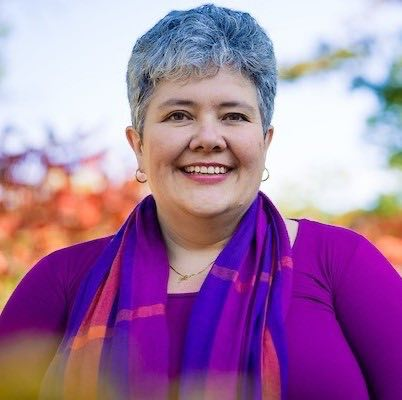The Sorrento Centre is an Anglican education and retreat centre located on Shuswap Lake in the central interior of British Columbia. The Rev. Michael Shapcott, its executive director, is well known in the Diocese of Toronto as the former deacon of Holy Trinity, Trinity Square and a long-time advocate for affordable housing.
Empire Remixed is a community of people across Canada and the U.S., brought together through the Wine Before Breakfast worshipping community in Toronto during Dr. Brian Walsh’s tenure as chaplain of the Graduate Christian Fellowship and professor at the Toronto School of Theology. Upon Dr. Walsh’s retirement in the summer of 2020, members of Empire Remixed presented him with a book of essays in his honour, organized around the themes of home, homelessness and homecoming.
This spring, the Sorrento Centre and Empire Remixed collaborated to present a four-part online symposium, “Beyond Housing to Homefulness,” with financial support from the Anglican Church of Canada and the dioceses of Toronto, Rupert’s Land and New Westminster. As Mr. Shapcott and Dr. Walsh explain, the opposite of homelessness is not merely housing but “homefulness” – a state of being in which people find themselves “at home,” physically, emotionally, relationally and even ecologically.
The symposium sought to answer the question, “In the face of a systemic homelessness that has economic, social, public health, ecological and cultural manifestations, how might we develop more holistic and integrated policies and practices for deeper homefulness in our communities?” Despite the launch of Canada’s $40 billion National Housing Strategy in 2017, homelessness and housing insecurity is an ongoing crisis across Canada, not only in urban centres but in rural and remote areas as well. “Too often, the conversation has settled on the least that can be done,” says Mr. Shapcott.
From April 22 to May 13, more than 80 people from across Canada, the U.S. and as far away as the U.K. came together online to learn from 16 panelists who provided deep insight into the issues of homelessness and home-making from their contexts. Each Thursday evening saw presentations from four panellists, as well as allowing participants to join a breakout Q&A session with the panellist of their choice.
The first two sessions on “Problematizing Home” explored dimensions of homelessness often lost in models focused solely on shelter. What are the obstacles not merely to housing, but to the creation of home? The third session, “Dimensions of Homefulness,” explored the contexts of rural and urban models of homefulness, while the fourth session, “Housing for Homefulness,” examined various models and examples of housing development that enhance homefulness. The panelists explored the threats to homefulness for Indigenous, Black and LGBTQ2S+ communities, rural Americans, the urban unhoused, and indeed all of us who live on a threatened planet.
They also shared examples of practices and projects that incorporate and foster homefulness: from a radical commitment to place to deep community engagement, recovering traditional language, foodways and stories of the land, creating public art to invite former enemies into cross-cultural conversation, honouring human dignity through beautiful and sustainable design, engaging in advocacy for a rights-based housing policy, and building partnerships between faith communities.
A month after the symposium ended, many of the panelists and participants met again to explore what could flow from the series, from more opportunities to learn from and support each other to forming a new national network of faith-based housing groups connected to the Canadian Alliance to End Homelessness. (Several of the panellists have also made presentations at the Diocese of Toronto’s Common Ground and the Common Good series.)
This final gathering took place against the backdrop of the terror attack on a Muslim family in London, Ont., renewed violence in Gaza and the West Bank and the identification of Indigenous children’s graves on the grounds of the former Kamloops Residential School. In a moving reflection entitled “Genocide, Domicide, and the Unnamed,” Dr. Walsh noted that “just as there is no homefulness without love, so also is hate invariably a force of homelessness.” Yet our God is the one who makes a home for us and calls us to be to be “healers of the breach, restorers of streets for living in, makers of homes for healing” (Isaiah 58:12). Sorrento’s Homefulness Symposium set that vision before us and offered challenging and inspiring examples of how our churches can respond to this call.



How do we strategically assess financial stewardship in our parishes?